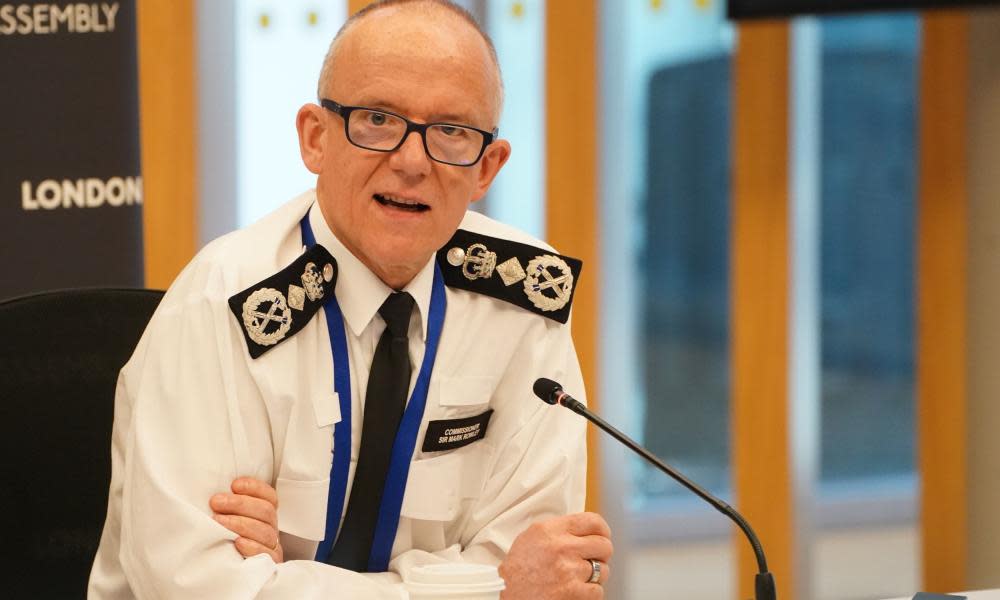Met police plan to stop attending most mental health calls prompts concern

Mental health leaders have expressed their concern at what will happen if the Metropolitan police chief follows through on his threat to stop officers attending mental health calls from September.
They warned “overzealous” 999 call handlers could end up refusing to dispatch officers to incidents where they are needed to protect the public “due to poor knowledge … of the nuances of the law”.
The move could also result in “people with protected characteristics under the Equalities Act”, such as those with a disability or from an ethnic minority, “being excluded from receiving the same level of support as others”, according to the Approved Mental Health Professional (AMHP) Leads Network, which supports mental health practitioners across England and Wales.
It issued a statement on Thursday saying it was “concerned at the speed in which the Met is unilaterally intending to act” after the commissioner, Sir Mark Rowley, gave 31 August as the deadline after which his force would stop attending most emergency calls involving psychiatric crises.
A letter seen by the Guardian earlier this week revealed that Rowley plans to introduce an initiative called Right Care Right Person (RCRP) within the next three months.
First implemented by Humberside police in 2020, RCRP has freed up so many Humberside officers to do “back to basics” policing that the force now has the highest arrest and detection rate in the country. Other areas including North Yorkshire and Lancashire have also introduced RCRP, with the Home Office saying it will soon be standard practice across the whole of England and Wales via a “national partnership agreement”.
The mental health leaders said that while they supported the main aims of RCRP, police officers would still be needed to attend some mental health calls.
“While we broadly support the aim to reduce or stop the use of police where more appropriate support is or should be available to support an individual in distress, this support is based on the view that police time needs to be free to continue to attend mental health-related incidents in situations where there is no other appropriate agency to undertake the role required,” said the AMHP Leads Network in a statement.
It said police would still be needed to keep the public safe in “situations where there is an incident or significant risk of harm”. This would include the application of section 136 of the Mental Health Act, which allows the police to take someone in crisis to a place of safety; and section 135, which enables officers to break into someone’s home with a warrant and take them to hospital.
The mental health leaders said that when introduced by other police forces, RCRP has sometimes been “misinterpreted”. This, they warned, could lead to:
People with protected characteristics under the Equalities Act being excluded from receiving the same level of support as others.
Situations in which relevant organisations are present or involved already, but concurrently police support also being needed and not provided.
Situations that meet the threshold for police attendance but it being declined due to poor knowledge by call agents of the nuances of the law, agreements and duties or overzealous application of the strategy.
The network calls for all agencies in mental health crisis care to “work in genuine partnership and have equal influence to the development of systems able to manage the demands in mental health crisis care against the resource pressures which show no sign of decreasing”.
The focus, it said, should ultimately be “on improving the experiences of vulnerable people in distress, over and above that of any one agency affected by delays”.

 Yahoo News
Yahoo News 
